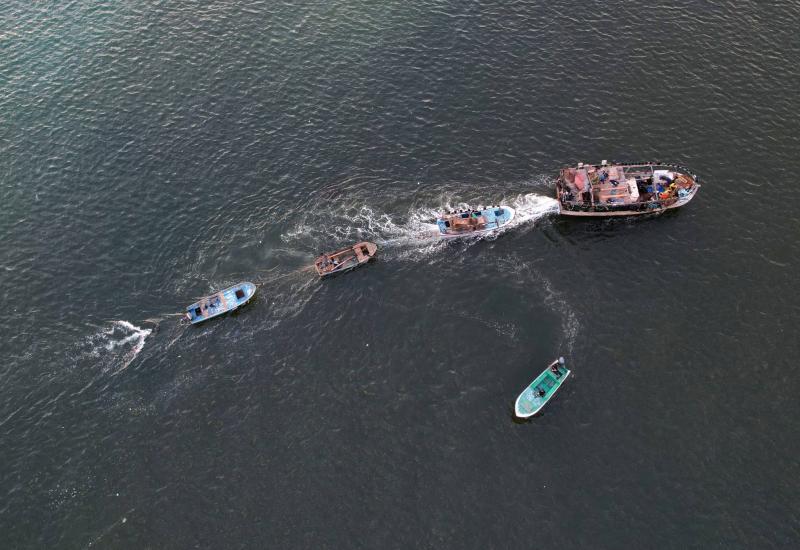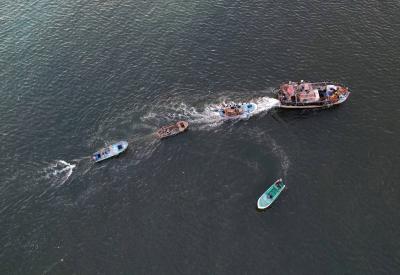Israel has given its preliminary approval today, Sunday, for the development of a gas field off the coast of the Gaza Strip, stating that it will require security coordination with the Palestinian Authority and Egypt. The office of Prime Minister Benjamin Netanyahu, in announcing this particular step regarding the "Gaza Marine" project, noted that "progress will depend on maintaining Israel's security and diplomatic needs."
A Hamas official, Ismail Radwan, told Reuters: "We are waiting to see what exactly Israel has agreed to, and we will not build our position based on a media statement." He added: "We affirm the right of our people in the Gaza Strip to all their natural resources."
During a government meeting, Netanyahu highlighted that Intel will build a new factory worth $25 billion, describing it as "a tremendous achievement for the Israeli economy, 90 billion shekels or $25 billion, the largest investment ever by a multinational company in Israel." The Israeli Ministry of Finance stated that the factory in the city of Kiryat Gat is scheduled to open in 2027 and will employ thousands of people. It added that under the agreement, Intel will pay a tax rate of 7.5%, up from the current 5%.
In addition, the Ministry of Finance announced today that "Israel will lay a 254-kilometer-long fiber optic cable between the Mediterranean Sea and the Red Sea, creating a continuous link between Europe, the Gulf countries, and Asia." The ministry indicated in a statement that "the Europe Asia Pipeline Company will lay the cable along the oil pipeline it operates between the port of Ashkelon on the Mediterranean and Eilat on the Red Sea," noting that any licensed telecommunications company in Israel will be able to use the cable connecting it to undersea cables from Europe, Asia, and the Middle East. The ministry added: "Laying fiber optic cables along the pipeline will help monitor any changes in terrain and detect any potential leaks."
The company's CEO, Itzik Levy, confirmed that the project "will turn Israel into a land bridge for communications linking Gulf countries and Asia with Europe."




